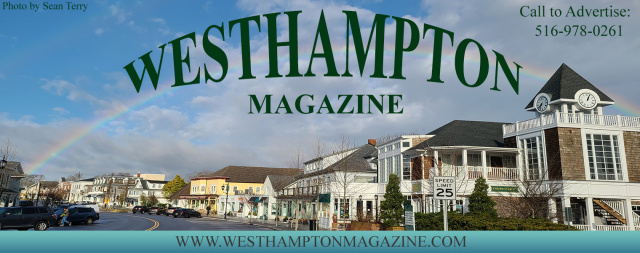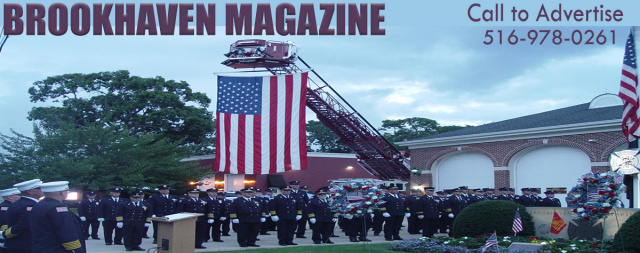He regaled my brother and me with stories of the excess of the Boardy Barn—may our Sundays forever be filled with yellow smiley stickers. He would turn on MTV and remind us that the famed Beach House, and all those tanned goddesses in tiny bikinis, were just down the road.
The names of the hotspots changed over the years, but since the 1900s, when Cannonball trains loaded with weekend warriors bypassed suburbia for our sands, Southampton was always one big party.
Unfortunately, by the time I turned 21, already a seasoned veteran of a raucous college bar scene and a survivor of Heavy Boozers High School—a nickname Hampton Bays teens lovingly gave themselves long before my time—I knew I had missed the boat.
Canoe Place Inn, Neptune Beach Club and The Drift Inn, Conscience Point Inn, Jet East, The Foggy Goggle, Mad Hatter, The Pink Elephant, Freedom Club, Hansom House, Buckley’s Irish Pub, The Coliseum, The Bunker, Club Flying Point, The Whitehouse, Brazil, Cigar Bar, 1 Oak, St. James Hotel, Danceteria, Le Mans, Club Marakesh—this list is just a small portion of the once-beloved, equally hated by some, and now-defunct Southampton Town nightclubs.
On any given night, big-money names, such as P. Diddy, Madonna or even the Rolling Stones, used to be hitting the town, entertaining locals and tourists alike.
Now, if they come at all, celebs choose to hide behind the hedges and attend members-only country clubs.
I’m not the only one who has noticed.
Conversations with management and staff of the few hotspots left standing also report a significant dip in crowd size and rowdiness.
“It’s crazy how much the Hamptons are dying,” Hampton Bays native Ulises Galdamez wrote on his Facebook at about 1 a.m. last week. “Eight years ago tonight, I worked my first Thanksgiving Eve party [as a bouncer], and the wait was three hours. About 2,000 people at The Whitehouse, 30 bouncers on staff.”
Mr. Galdamez, who now runs his own club security firm for multiple Southampton Town clubs, continued, “Now we pray for 200 people, pray we make it three hours into the night able to keep five guys on.”
At that time in the morning, his target audience should have been either drinking or sleeping. Instead, that single post got about 50 “likes” within an hour. A dozen or so comments lamented the lack of buzz, disparaged old folks for turning a party town into a retirement home, and relived the “good old days” of going to the bathroom and never finding the folks you came with again.
The people had spoken. Things have changed.
Here’s why.
Changing Landscape
“F--- you, white trash!”
According to many, this widely reported parting shot heard around the world, directed at a bouncer and followed by a bumper, was the beginning of the end.
At around 2 a.m. on July 7, 2001, socialite Lizzie Grubman—a public relations juggernaut with star clients such as Jay-Z and the Wu-Tang Clan—ended an expletive-laden argument with a Conscience Point Inn bouncer in North Sea by backing her black Mercedes Benz SUV into him, and 15 other people.
She broke ankles, an arm, a pelvis—and the international news cycle.
The lawsuits were in the $100 million range, and that was the least of Ms. Grubman’s problems, as she was facing nine felony assault charges and more than 150 years in prison if convicted. She eventually pleaded guilty and served 38 days in solitary confinement.
The argument that Ms. Grubman killed the Hamptons era of excess, while facile on its own merit, is exceedingly easy to make. Media outlets from The New Yorker to Britain’s Telegraph newspaper argued just that, before 90 percent of the aforementioned clubs even closed.
Hell, anyone who has read “The Great Gatsby” will tell you a single car crash can kill a never-ending party.
But much like Daisy Buchanan’s fatal accident, the Conscience Point Inn crash didn’t kill the party, per se. It just turned the lights on, waking up everyone to an inevitable last call.
Ironically, Ms. Grubman knew how perilously close the club scene was to extinction better than most, before any bones broke.
For years prior to the incident, North Sea residents had been complaining to town officials that the noisy nightclubs in the otherwise residential neighborhood needed to be reined in, or shuttered.
As early as 1999, Ms. Grubman was a spokeswoman for Conscience Point Inn and Jet East, fighting town attorneys in the media for the right to party, claiming that the two clubs, less than two miles apart, were being “unfairly targeted,” according to Press archives.
On Memorial Day weekend 2000, Southampton Town code enforcement unleashed aggressive action to ensure all nightclubs were up to code and following ordinances. Every weekend that summer, inspections were the norm, according to then Chief Building Inspector Paul Houlihan.
“The town has been quite active in policing these clubs,” Mr. Houlihan said, according to Press archives. “There are two or three of these clubs every summer that act up. Eventually, we wrestle them down and put them in place … I would hope people would agree that it is much better than it was years ago.”
While “better” is debatable and relative, the town’s actions were decisive. In addition to the fines, the town began towing illegally parked cars near the clubs, to the annoyance of patrons.
Ms. Grubman, again, stuck up for the clubs in the media as code enforcement officers swarmed in and hit them with a collective $13,000 in fines for noise and code violations. And just over three years after stumbling from her Mercedes, she watched as Conscience Point Inn and Jet East were shuttered.
For her part, Ms. Grubman, who still splits her time between Manhattan and the Hamptons with her children, agreed to be interviewed for this story, with her assistant Marley Glabman saying, “Lizzie would love to give you her take on this.”
When asked, via email, if the car accident and ensuing media blitz “led to a local backlash against clubs and the party scene in general,” Ms. Grubman became unreachable. Later, Ms. Glabman replied via email, saying, “After reviewing the questions, Lizzie decided she no longer wants to do the interview.”
And while the current meddling pales in comparison to a decade ago, locals see recent steps taken by the Town Board as indicative that they, too, want to cut the music.
Just this past summer, Southampton Town used Community Preservation Funds to buy up the land on Dune Road in East Quogue housing Neptune Beach Club and The Drift Inn. Yet when asked about balancing the desires of residents with the needs of local businesses, Southampton Town Attorney Tiffany Scarlato declined to discuss any specific actions against bars or clubs in the past or present.
Where’s The Party House?
Two summers ago, friends of mine from SUNY New Paltz rented a house for the summer in Hampton Bays with 30 of their closest friends. It was awesome. I got to see my buddies, they got to live up the Hamptons experience, and the landlord made a killing on a super-illegal rental.
This summer, they rented the same house—but things didn’t go quite so smoothly.
The town took action against them and the landlord early, issuing a temporary restraining order on Memorial Day weekend, along with a $2,000 fine and a summons. An eviction notice came a few weeks later.
As it turns out, their landlord was one of the “usual suspects,” explained Ms. Scarlato during a recent telephone interview, that code enforcement actively tracks online and subsequently investigates.
Tim Baynes, one of the renters, said the landlord—whom he declined to name, fearing a lawsuit over looming legal fees—owned about seven party rental houses and had most of them shut down this summer, as they have been in the past. Not only is it a hit for all parties involved—between rent, security, fines and legal fees, the tenants lost $54,000—this single shutdown cost local businesses nearly $290,000, money that would have been spent by Mr. Baynes and his band of 35 brothers on clubs, cabs, meals and gas.
On the surface, the system worked for the locals, no matter how much it stunk for my friends. While there has been increased support for more code enforcement action in the past year, namely in Hampton Bays, going after these party houses seems out of touch when more immediate concerns involve multiple families of illegal immigrants living in one home, putting a strain on the school system.
Regardless, the town has been so effective in shutting down what was once viewed as a crippling share house problem that Ms. Scarlato estimates there are only five party-related code violations per year.
And most of those, she said, aren’t even true party houses, in the old sense of the phrase. “There has been a shift away from the share house and toward corporate-sponsored, upscale events thrown at residential homes,” Ms. Scarlato said.
This past summer, code enforcement has found fewer reasons to ticket the common man (except my friends, of course), while enforcing town code at the types of parties “where you’d see a Cadillac spinning on a pedestal on a front lawn”—which actually happened in this summer, she said, at a private party on Middle Line Highway in Bridgehampton.
When asked about a dearth of party houses hurting business, Ms. Scarlato replied, “We are very supportive of the business community, but we are more concerned with upholding the town code.”
According to Town Supervisor Anna Throne-Holst, there is no intention to shut down the local clubs or bars, and if actions against share houses are somehow doing that, it is an unintended side effect. “Our goal is to have a steady enforcement of our code,” she said during a recent telephone interview. “If a house is over-occupied, or you are generally bad neighbors, we’ll go after you. It is simply part of our public safety agenda. We want to be an attractive, high-end destination for tourism.”
Between the party houses disappearing and the club scene drying up, the town is missing its tourism mark for a specific crowd, according to Mr. Baynes. “Last year was perfect,” he said. “We went out so much that cabs consistently lined up outside of our house on the weekends before we even called them. We loved the town and we were happy to throw them our money.
“But,” he continued, “we were very hesitant to rent a house this summer, mainly due to the closing of the Drift. The Drift was the center of the summer scene, and everyone loved it. People didn’t care if the drinks were overpriced and the line was too long. We all wanted to be there, every Saturday.
“Even before we got evicted, we were thinking of going elsewhere for Labor Day weekend,” Mr. Baynes added. “The few weekends we had there, you could tell the town was getting less exciting as the summer went on. There were even nights where we had serious discussions about us all, 35 paying bar patrons, staying home instead of going out and spending our money at the bars.”
From here on out, he said, he and his pals will be taking their talents elsewhere—most likely Montauk, Cape Cod or the Jersey Shore.
As with anything in the Hamptons, money itself is one of the main factors for the party dying out.
According to Ms. Throne-Holst, just as the club strobe lights started to dim, East End real estate prices skyrocketed, pricing young people out of the market. The 30-somethings who had already bought were the only lifeblood left, and as they underwent a “generational shift” into family life, the money and time for boozing on the weekends vanished.
Between the cost of living, lack of entry-level professional jobs and an affordable housing void, the East End blossomed into a playground for the rich and a gated community for everyone else, which Ms. Throne-Holst aims to address and resolve, she said, starting with an ambitious clean water initiative.
But, as they stand now, the facts are the facts, she said, and the census numbers clearly show that the East End has one of the largest aging populations in the state.
Long before I moved here, our town was divided over its penchant for partying. Some see it as a cancer, while others revel in both the cash flow and fun that comes with it. All agree, though, that the music has all but stopped.
I’ve spent the past two years discussing the “why” with hometown bartenders, high school classmates, parents of children I coach, town and village board members, and anyone else willing to listen. Most everyone points to one of the above three factors as the overarching reason for the town drying out. There are others—one bartender even swears the only reason is exorbitant taxi fare prices—but none holds as much water.
Depending on which pasture you find greener, clubs or quiet country, I’m either declaring us cured, or issuing a death certificate. It’s difficult to prove the nonexistence of anything, especially something as visceral as a “scene.” But one final nail closed the coffin for me.
Party 105.3 began playing throwbacks this past summer preceded by a wistful narrator asking listeners, “Do you remember [insert Southampton Town club name here]? So do we.” Like the songs, the intros change almost daily.
The radio station hasn’t run out of clubs to remember yet.
It may run out of oldies first.


 Dec 2, 2014 2:32 PM
Dec 2, 2014 2:32 PM





































































